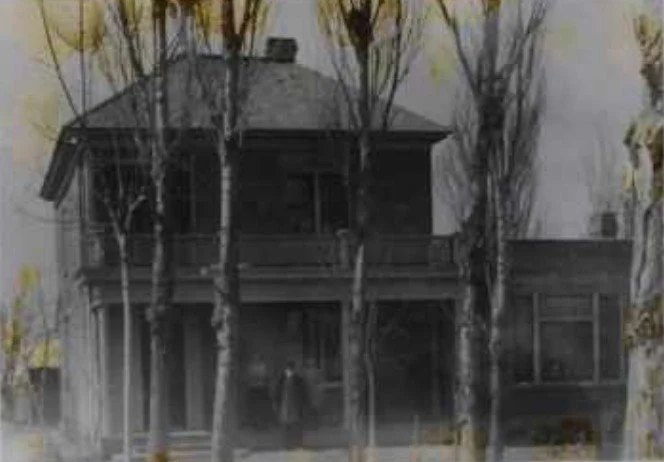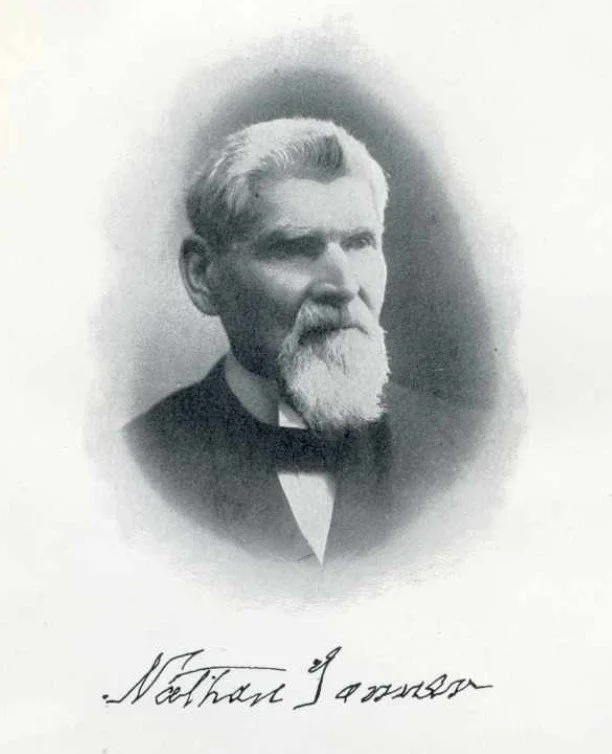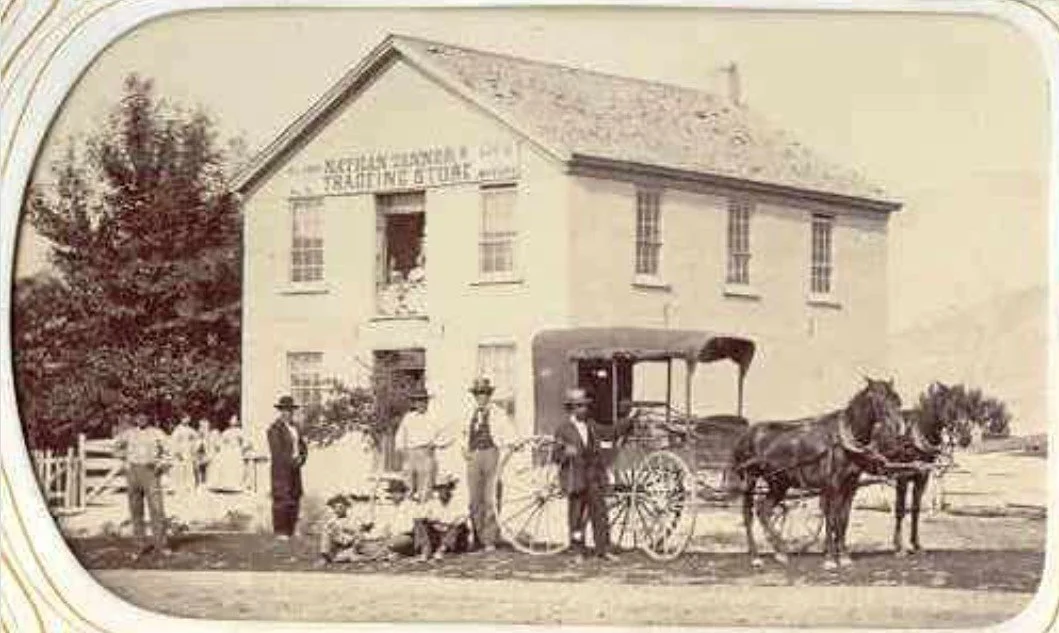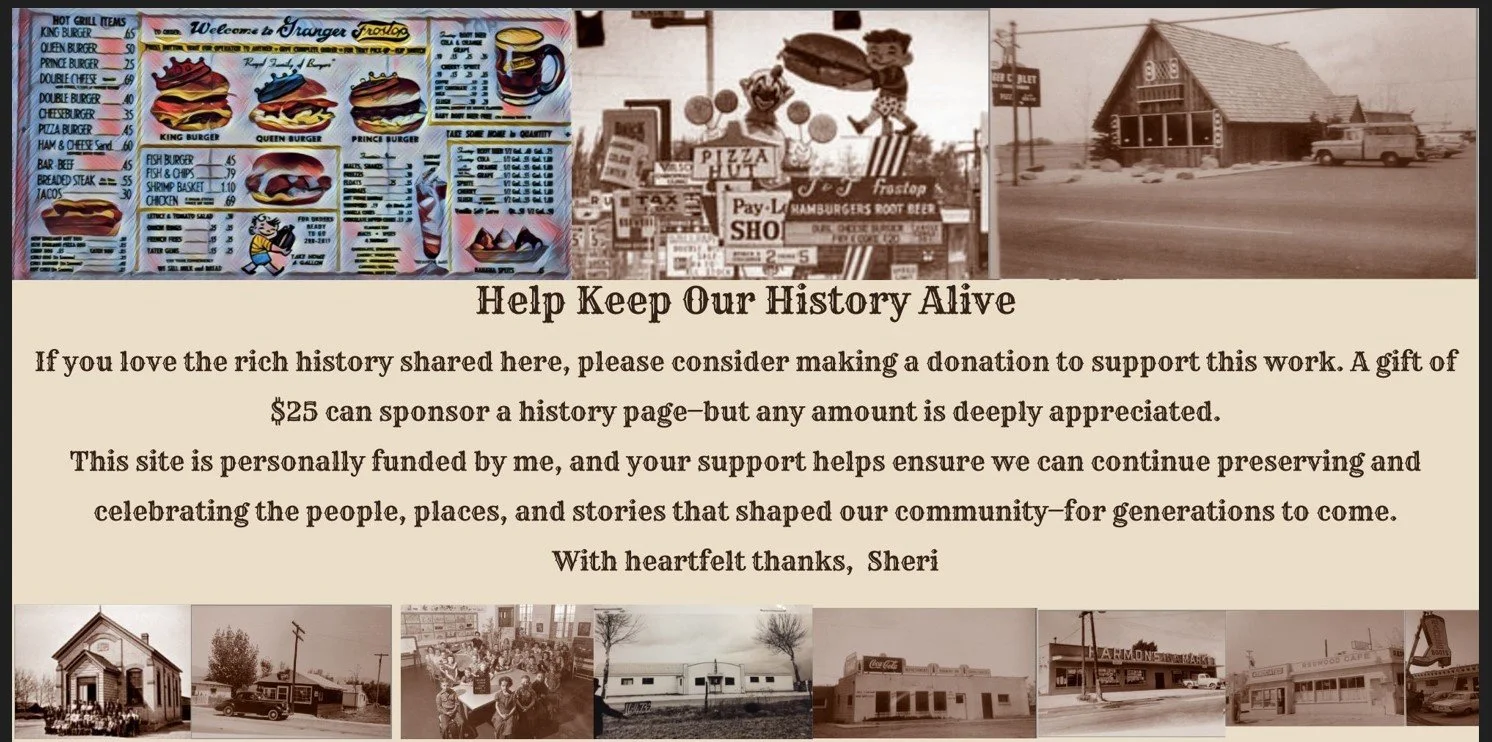Nathan Tanner: Last Survivor of Zion’s Camp
Nathan Tanner Sr.: Last Survivor of Zion’s Camp
Nathan Tanner (1815–1910) lived a life that spanned nearly the entire pioneer era of The Church of Jesus Christ of Latter-day Saints. A devoted disciple, faithful missionary, family man, and community builder, he was remembered at his passing as the last living member of Zion’s Camp and one of the oldest members of the Church.
Born in 1815, Nathan was the son of John Tanner, one of the Church’s earliest benefactors. Following his father’s example of faith and sacrifice, Nathan dedicated his life to the service of the gospel. He married five wives during his lifetime—Rachel Winter Smith, Mary Baker, Persis Tippetts, Sarah Littley, and Mary Peacock—and together they raised 18 children. Through his first wife Rachel, he became the ancestor of many prominent Church leaders, including N. Eldon Tanner, Franklin D. Richards, Hugh B. Brown, and Victor L. Brown.
Zion’s Camp and the Battle of Crooked River
In his youth, Nathan was deeply involved in the dramatic events of early Church history. He marched with Zion’s Camp in 1834, enduring the hardships of that journey in defense of persecuted Saints in Missouri. He later participated in the Battle of Crooked River in 1838, an encounter that left an indelible mark on the Latter-day Saint community. His loyalty to Joseph Smith never wavered, and that devotion would later be praised by President Joseph F. Smith at his funeral.
Missionary Service and Hawaiian Influence
Nathan served at least four missions for the Church, including one of particular significance to Hawaii. In 1852 he was called to the Sandwich Islands (Hawaii) with Benjamin F. Johnson and others. Their arrival coincided with a time of great political turmoil. At one point, King Kamehameha III, distrustful of his own advisors, sought counsel from the Latter-day Saint missionaries, who had made it clear they sought only to preach the gospel and not interfere politically. After prayerful consideration, Elders Johnson and Tanner advised the king to remove an unpopular and corrupt advisor, Dr. Judd. The next day the king acted on their counsel, leading to peace in the kingdom. This fulfilled a dream Elder Johnson had shared with Nathan the day before, in which a fire threatening destruction was put out through inspired action. Nathan later served as first counselor in the Hawaiian mission presidency, leaving a lasting spiritual legacy there.
Pioneer and Community Builder
After coming west with the Saints at age 33, Nathan initially settled in South Cottonwood, Utah. He was known as a “minute man in the fullest sense,” ready at a moment’s notice to defend and serve. He worked as a freighter, ran a store, and engaged in various enterprises with his children. His son Nathan Jr. became a successful lawyer in Ogden after managing large ore-hauling operations in Little Cottonwood Canyon.
Nathan himself later moved into Salt Lake City, where his life took on a quieter rhythm compared to his earlier dramatic experiences. Yet he remained influential, known for his ability to work with Native peoples and his dedication to community and Church. In 1849 he had been part of Parley P. Pratt’s exploring mission to southern Utah, further cementing his role in building up the Saints’ new homeland.
Honored Among the Faithful
In 1864, Nathan and his brother John Joshua Tanner attended the first reunion of Zion’s Camp veterans, held in Salt Lake City’s Social Hall. Over fifty survivors gathered, and they were personally blessed by Presidents Brigham Young, Heber C. Kimball, and Orson Hyde. Wilford Woodruff recorded that it was one of the most spiritual and joyful gatherings he had ever attended.
By 1909, Nathan Tanner was the sole surviving veteran of Zion’s Camp. His longevity, coupled with his stature as a pioneer and missionary, gave him a special place in the memory of the Saints.
Final Years and Legacy
Nathan Tanner was described as a man of rare personal charm—straight as a ramrod, handsome, enthusiastic, and full of love for life and people. One family member recalled, “I could have fallen in love with him,” even though he was nearly seventy years older. His personality and testimony left a deep impression on all who knew him.
He spent his final years in Granger, Utah, living with his son Stewart Tanner. After a stroke, he passed away there on December 17, 1910, at the remarkable age of 95. His obituary noted that he was the last surviving member of Zion’s Camp and likely the oldest living member of the Church. At his funeral, President Joseph F. Smith declared that Nathan’s fidelity to the Prophet Joseph Smith alone was sufficient to secure him “a place among the worthy in the Celestial Kingdom.”
Lived in his son Steward Tanners home during the latter part of his life.
Nathan Tanner lived a life full of faith, service, and enterprise. His store in South Cottonwood was more than a business—it was a gathering place that reflected his dedication to community and family




